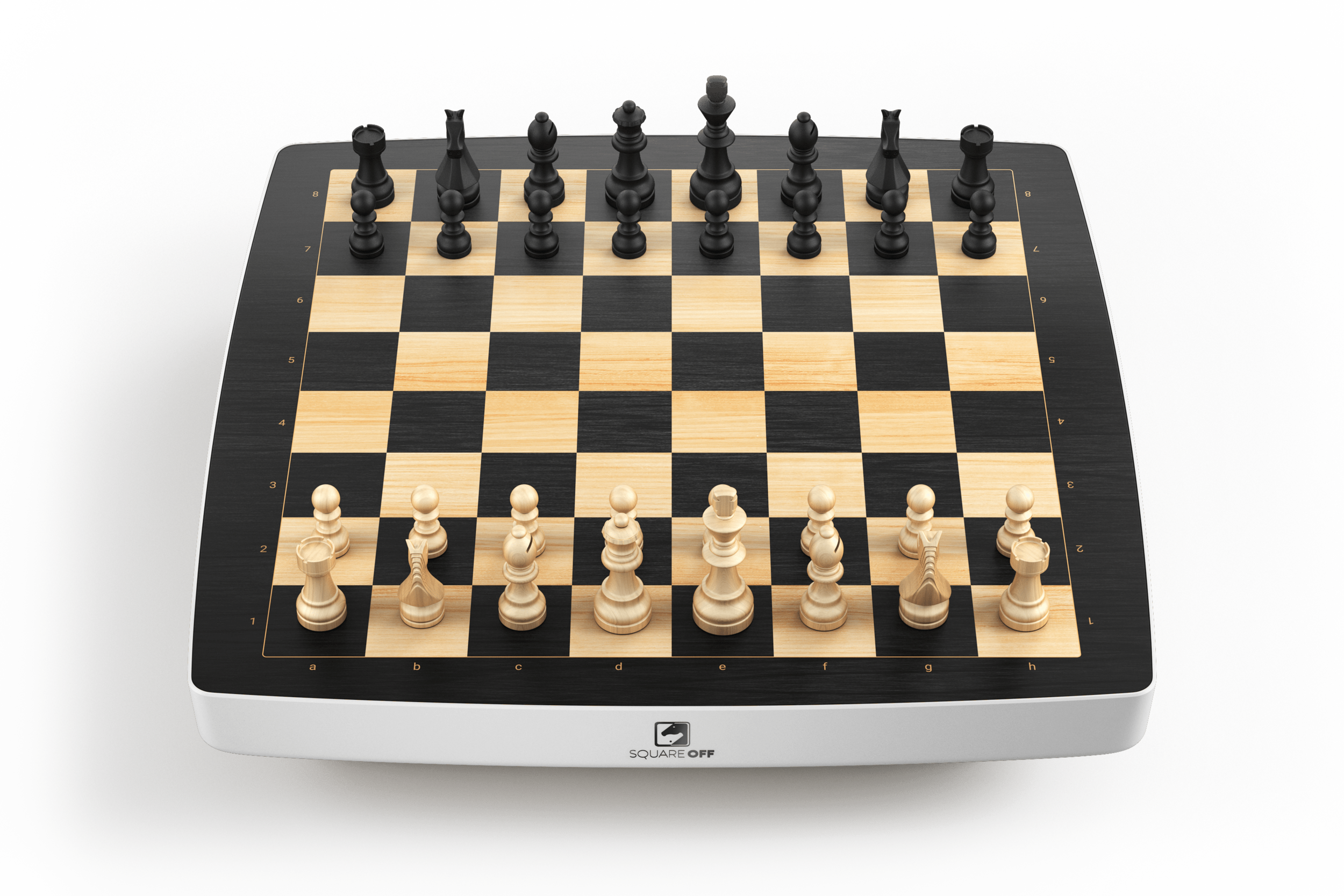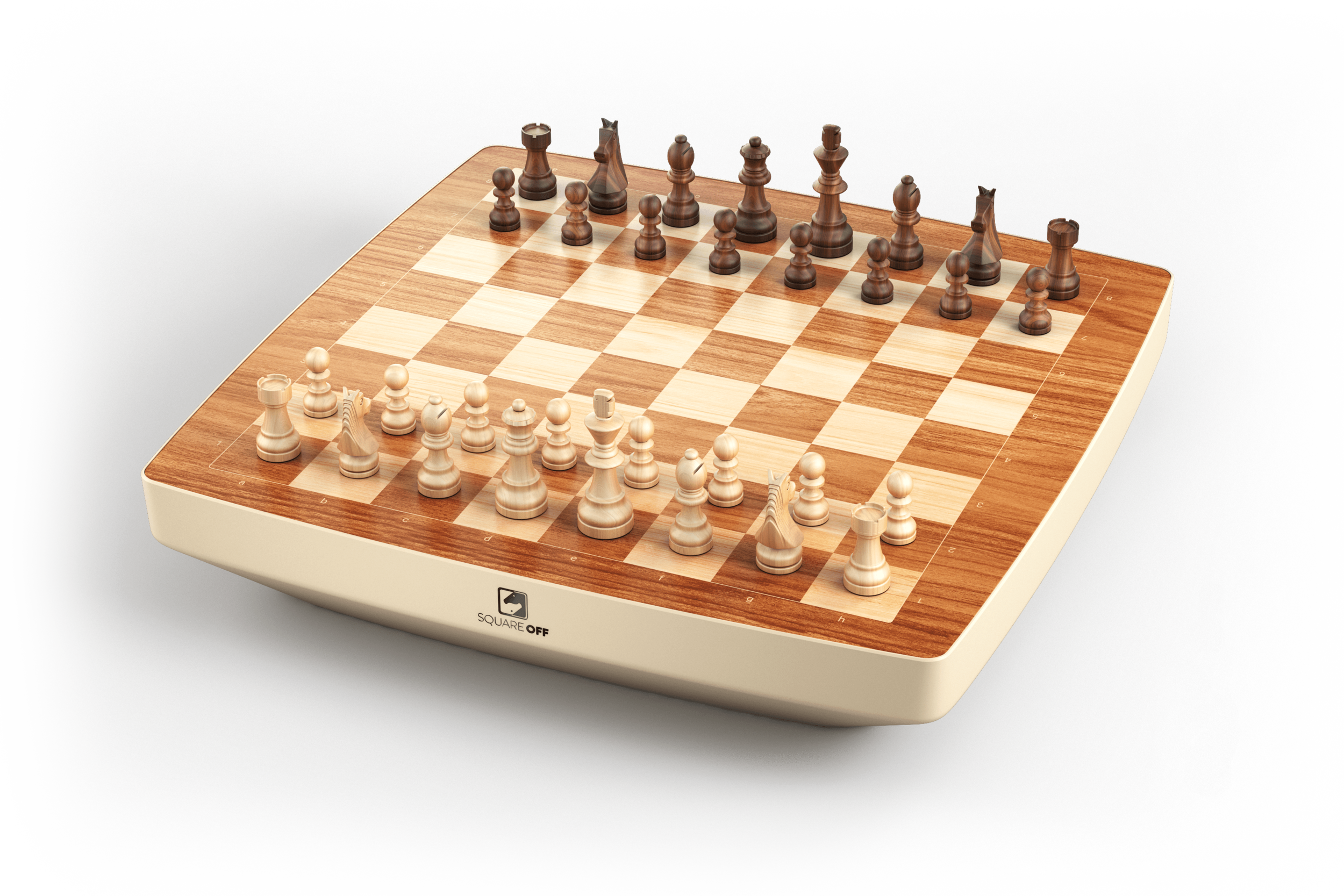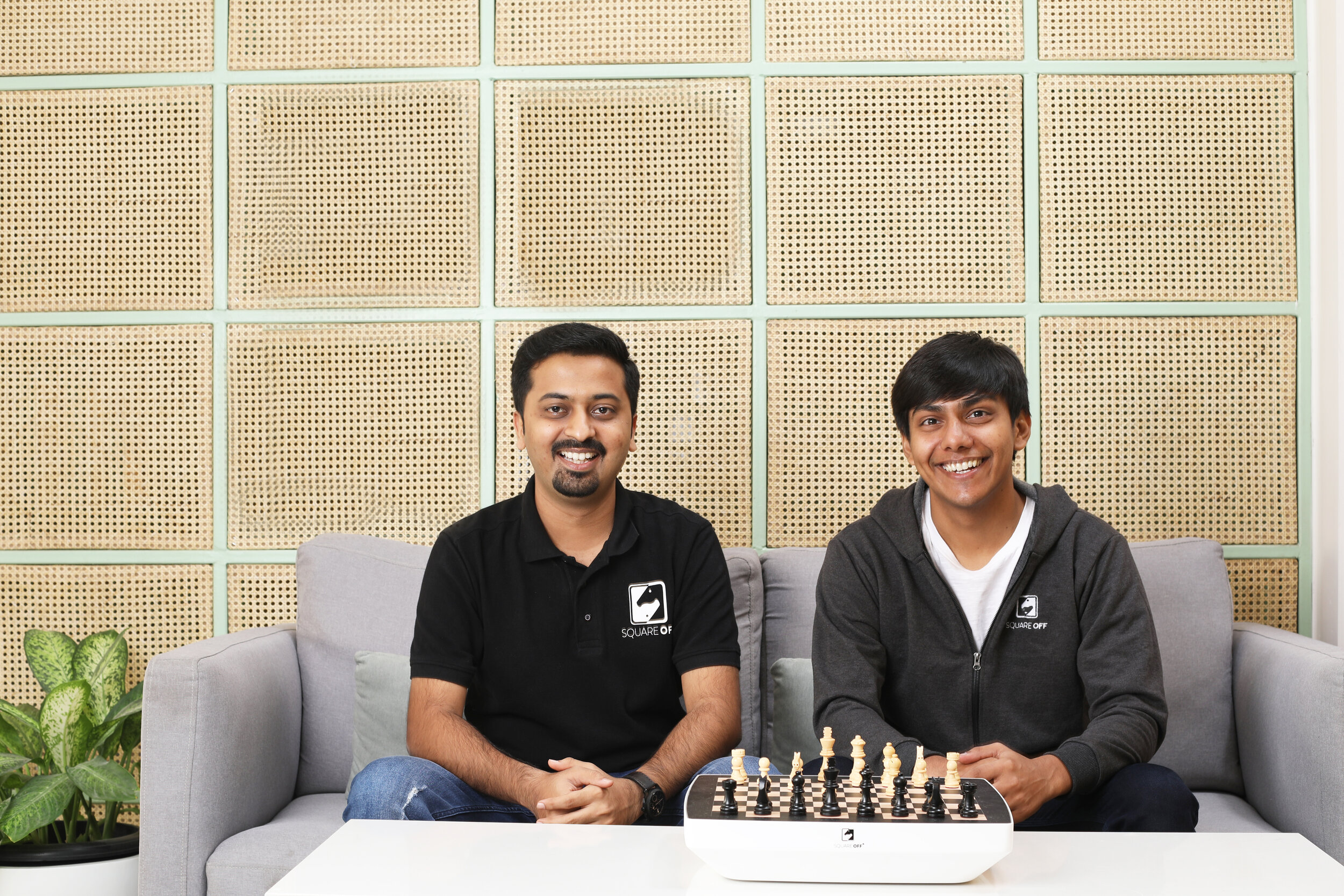Man vs Machine
How one company’s artificial intelligence technology is automating board games.
Imagine sitting at a table with a chessboard by yourself. The pieces are all laid out. Your opponent isn’t sitting in front of you as you make your first move, but out of nowhere, your opponent’s chess pieces move all by themselves. They continue to do so throughout the game until you capture the king. When the match is over, the pieces rearrange themselves without you or your opponent lifting a finger.
Chess hasn’t changed in its 1500-year history. Throughout its entire existence, there were always two people who played next to each other, so this board sounds like something from the future. As of recently, however, this board is now being sold on the market. One player who used this chessboard says, “Magic happens every time I play on the board.” Another user says, “This is more interesting than my video games.” In what is now being described as the “world’s smartest chessboard,” this device has fundamentally changed how people play the game. Your opponent who you just faced could be anywhere in the world. Or, it could be the chessboard itself. It is designed to challenge people of all ages according to their skill level. A magazine that reviewed the board describes it as “[t]he board that can think, challenge you, and make all the moves on its own. It really has its brain and looks like a scene from [a] Harry Potter movie has come alive.”
According to Square Off, the company which manufactures the boards, the only thing that two human players would have to do to play is download Square Off’s app and virtually connect there. Only one player needs the chessboard. While the second player can also buy one, they can also connect with their opponent’s board on chess.com. The board will record any moves made by the player on chess.com and move the board’s pieces respectively for the other person to see. The company describes the player vs player and player vs machine settings as follows:
“Four years and seven prototypes on, the chessboard now lets users battle the system’s artificial intelligence (AI) chess engine, which has 20 difficulty levels. The related app Square Off lets users challenge players located anywhere, whether they have the board or not. When your opponent makes a move on the app it plays out on your Square Off board with the selected piece moving on the board.”
Three of Square Off’s chessboard designs
To help novices quickly become chess experts, the company created a personalized coach, Viktor, for customers to access on their phones. If they become tired of chess, Square Off’s latest boards allow them to play at least three other games: chinese checkers, halma, and connect 4. Square Off soon plans to let developers code their own games for the chess community to use.
Raine Magazine had the opportunity to interview Bhavya Gohil and Aatur Mehta, the founders of Square Off, about the chessboard. Here are the answers to some of the questions that we asked them.
What gave you the idea to merge chess and electronics together?
“The inception of the idea was in 2013 when Bhavya and Atur were working on a research project to build a chessboard for the visually impaired at their university's technology incubator lab, RiiDL.”
Describe what went into developing the chessboard over the years. What were some of the biggest milestones that you reached?
“When we set off to create a consumer brand, we had to start with transforming a computer connected braille chessboard for the visually impaired into an app connected smart chessboard. While the engineering list is countless, the biggest milestone has been to design and manufacture a consumer product with a precision telerobotic arm inside. Before this, it has only been used for industrial robotics, but now over two years and tens of prototypes later, the chessboard lets users battle the system’s artificial intelligence (AI) chess engine, which has 20 difficulty levels. The companion Square Off app lets users challenge players located anywhere, whether they have the board or not. When your opponent makes a move on the app, it plays out on your Square Off board with the selected piece moving on the board.”
What other games does the board allow you to play?
“Chess, Checkers, Connect 4, Halma and more will be available soon.”
The trailer implies you can make more games with the board around 2:00. How does one go about creating a game? (see Square Off NEO & SWAP | Board Games Powered by Robotics & AI by InfiVention Technologies — Kickstarter)
“We will open developer SDK's soon which will allow third party developers to develop games and interactions with the board and share with everyone on the Square Off network. These games could be played by anyone having a Square Off board.”
Developing tech can be challenging for beginners. How did you go about learning what you needed to know in order to make the chessboard?
“For a startup, the best product is the one which your customers love, so from the very beginning we have been collecting inputs from users while showcasing at events globally. This, along with our vision, has allowed us to stay focused and build a rockstar team which has helped us achieve this. At Square Off, our team works like a family, and it is everything for us.”
Marketing is something that many engineers struggle with. You’ve led a very successful media campaign. Describe what went into the marketing of the chessboard.
“Chess is the most played board game in the world. Hence, we decided to launch with chess as our first game. For our first crowdfunding campaign, we were preparing for launch for over two years and had lots of signups collected from people interested in supporting us. Today we have a lean team doing the usual digital marketing for us, but over the years we've grown from a few supporters to a large community. Along with guerilla marketing, word of mouth from our community has been one of our biggest strengths.”
If you could give yourself advice 5 years ago, knowing what you know now, what would it be?
“The best product is the one in the hands of your customer.During our initial journey with our engineering mindset, we would spend endless time perfecting the product and over engineering it with features. But we have learned that you get a lot more learnings once the product is in your customers hands, sometimes what you are marking is not what your user wants. Speed to market is everything!”
What is your most memorable experience from designing the chessboard and why?
“A few years ago when we were showcasing the concept, one of the visitors walking by (of age 90 something and a big fan of chess) noticed one of the pieces move on its own on our Internet connected chessboard. He was startled. He walked over and asked if he could play a game and choose to play a remote game with this grandson whom he loved playing chess with. The joy and emotion during his game were priceless, and it is for experiences like these that we keep pushing ourselves everyday to innovate.”
What are you most excited about regarding your upcoming projects?
“Our vision is to create toys that offer a meaningful and magical experience. Along with the launch of three new products, this year we are also releasing Viktor - a personalized coach. This is an experience unlike any other chess app and will make chess learning a lot more fun.”
How will AI (artificial intelligence) and ML (machine learning) impact our daily lives ten years into the future? What makes you so certain about your prediction?
“Technology is already such a big part of our lives today, but it still lacks situational awareness and smartness. I foresee that development in AI/ML will make it deeply connected with our lives in the future allowing it to offer a personalised experience to everyone depending on their needs. Along with improved health and safety, we will see ourselves having a lot of meaningful interaction with technology.”
About the co-founders:
In 2013, Bhavya Gohil and Aatur Mehta, then second-year students of electronics engineering in Mumbai, took up the challenge to make the world’s smartest chessboard at their college’s incubator lab.




